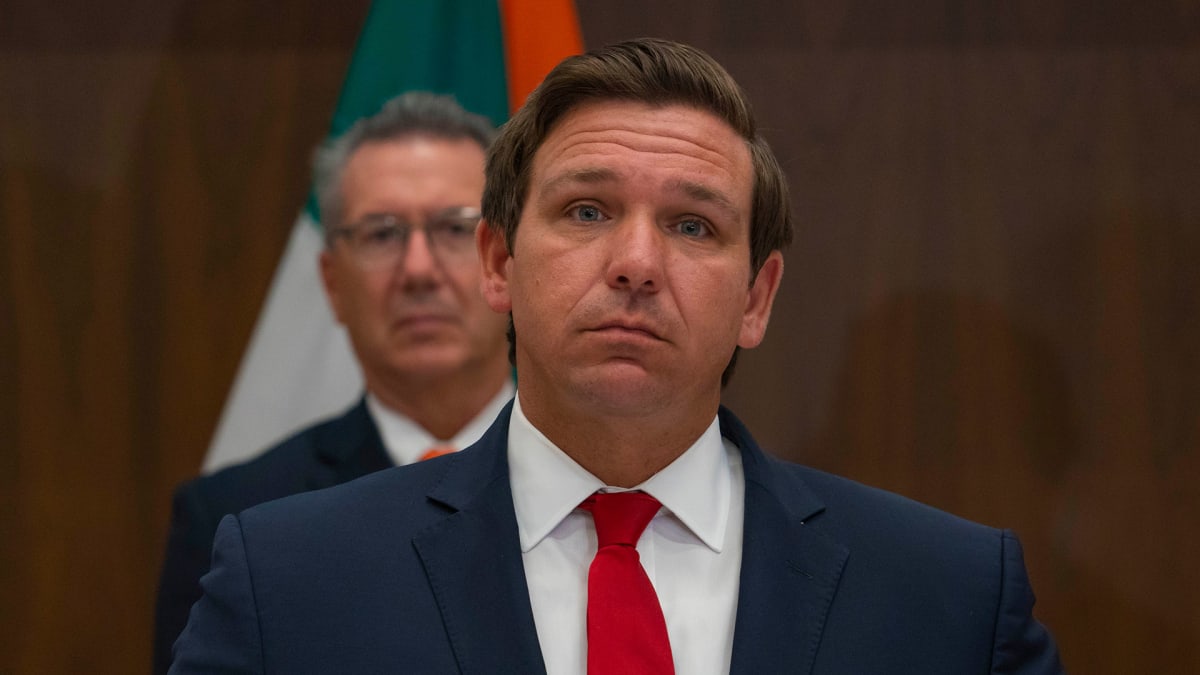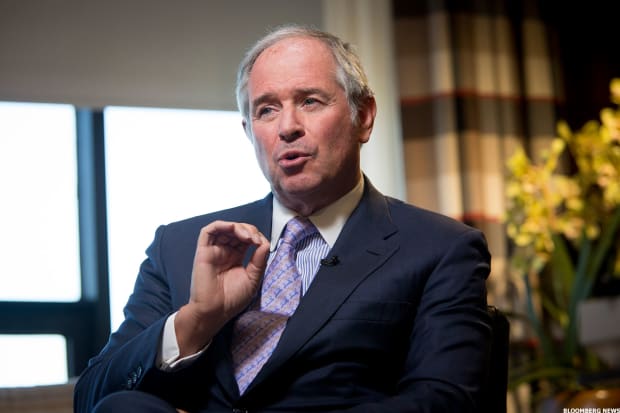
The weeks go by -- and so do the presidential prospects of and begin to look alike for the Republican governor of Florida Ron DeSantis.
Not long ago it was difficult to find major Republican donors who did not speak well of him.
His handling of the coronavirus pandemic -- the governor said he "bucked the covid-19 orthodoxy" and kept the state open -- was hailed by the GOP and made him probably the most serious challenger to former President Donald Trump for the Republican candidacy for the presidency in 2024.
In addition to his local record, DeSantis -- whose resume includes tenures as a House member and naval officer and who is a Harvard lawyer -- also has age on his side. He is 44 when Trump is 76 and outgoing Democratic President Joe Biden is 80.
But since last month his well-oiled machine seems to be jamming up.
DeSantis Makes a Number of Missteps
The Florida chief, who reports say will officially announce his bid at the end of May or the beginning of June, has committed a series of missteps that seem to cost him a good deal of credibility.
First, he stumbled regarding Russia's war in Ukraine, which frustrated the Republican establishment, including Sens. Marco Rubio of Florida and Lindsey Graham of South Carolina, who support Kyiv against Russian President Vladimir Putin.
"While the U.S. has many vital national interests -- securing our borders, addressing the crisis of readiness within our military, achieving energy security and independence, and checking the economic, cultural and military power of the Chinese communist party -- becoming further entangled in a territorial dispute between Ukraine and Russia is not one of them," DeSantis told the former Fox News star anchor Tucker Carlson in March.
Carlson, who sent Republican leaders a questionnaire, posted the answers on Twitter.
DeSantis, whose remarks are generally aligned with Trump, tried to walk back his "territorial dispute" statement but the damage was done.
The likely Republican contender is trying to balance between not alienating Trump fans while appealing to moderate voters. But this is proving very tricky, as he in recent months embarked on a culture war that could come to haunt him during the general election.
Last year, DeSantis signed a state law, known as the "Don't Say Gay" law, banning kindergarten to third-grade public school classrooms from teaching about sexual orientation and gender. He has proposed to extend this ban to all school-age levels.
In addition, he pushed through a new Florida law banning abortion in the state after six weeks of pregnancy. (Most women don't know they're pregnant at that point.)
All this pushed down DeSantis's standing in the polls against Trump, who announced his candidacy for the GOP nomination on Nov. 15. The real estate mogul thus has a long runway to define and attack DeSantis, long before his challenger enters the race. (Trump, of course, faces a set of legal challenges that could hamper or derail his own campaign.)
Blackstone's Schwarzman Withholds Support of DeSantis
The Florida governor's popularity decline, coinciding with Trump's resurgence in the polls, seems to be putting off big donors. Steve Schwarzman, co-founder and chief executive of private-equity titan Blackstone (BX), has just decided that he is not going to donate money to DeSantis's campaign, at least not right away.

According to Bloomberg News, the billionaire recently met with DeSantis in Florida's capital, Tallahassee, and came away from the meeting unconvinced about the Republican governor's prospects.
The Republican megadonor, who wanted to gauge the national standing of the likely candidate, decided to withhold his support within the GOP field.
This decision was a huge blow for DeSantis because Schwarzman, a big supporter of Trump before distancing himself due to the former president's rhetoric, was one of those who advocated the emergence of a new generation of political leaders.
"America does better when its leaders are rooted in today and tomorrow, not today and yesterday,” Schwarzman said on Nov. 16, one day after Trump announced his candidacy. "It is time for the Republican Party to turn to a new generation of leaders, and I intend to support one of them in the presidential primaries."
Blackstone did not immediately respond to a request for comment.
Nor is Schwarzman, who during Trump’s first term donated $3.7 million to committees that supported the former president, the only billionaire to err on the side of caution when it comes to DeSantis.
Thomas Peterffy, chairman of Interactive Brokers, has also said that he and his friends were going to pause their financial support for DeSantis. The reason given was that they condemn his "extreme positions on social issues."
"I have put myself on hold," told the Financial Times last month, "because of his stance on abortion and book banning. ... [Myself] and a bunch of friends are holding our powder dry.
"We are waiting to see who among the primary candidates is most likely to be able to win the general, and then put all of our firepower behind them," explained the megadonor. He'd backed Trump in the 2020 presidential election and has previously indicated that he would not help the former president financially in 2024.
And the tech billionaire and Republican megadonor Peter Thiel has said he won't fund candidates in 2024, according to Reuters.

.png?w=600)





